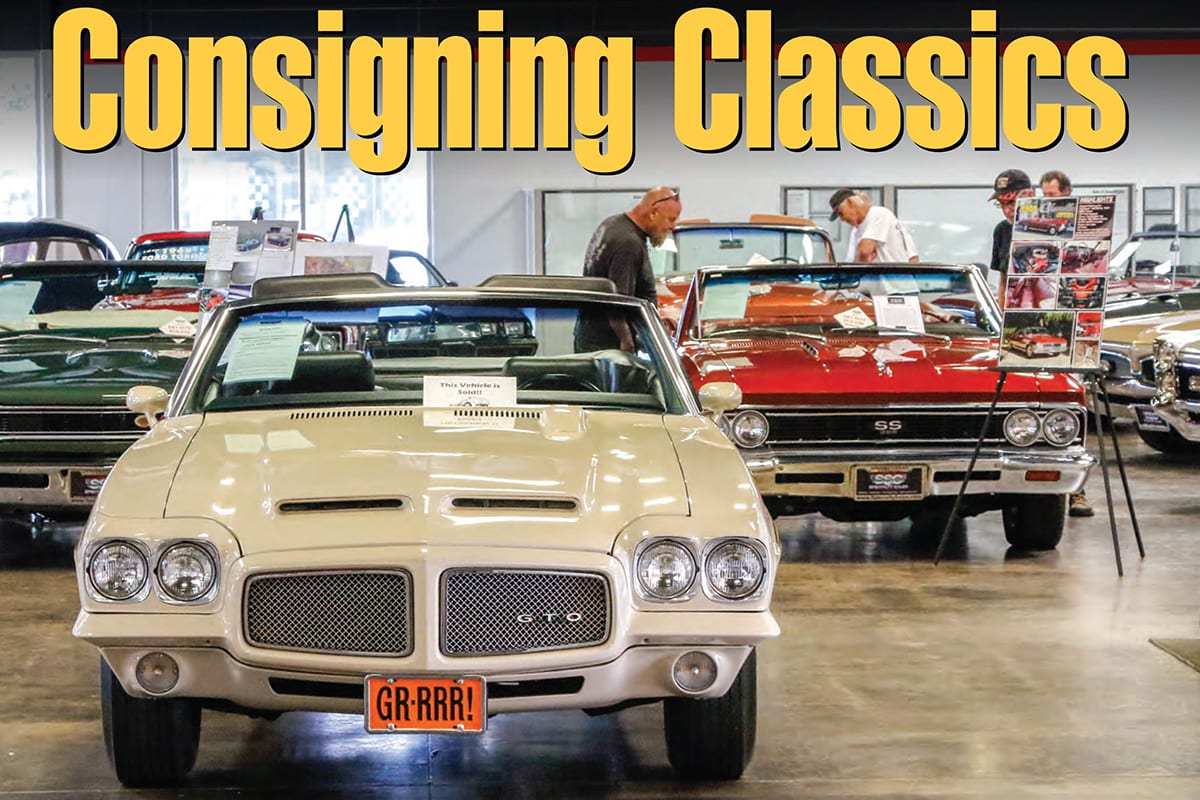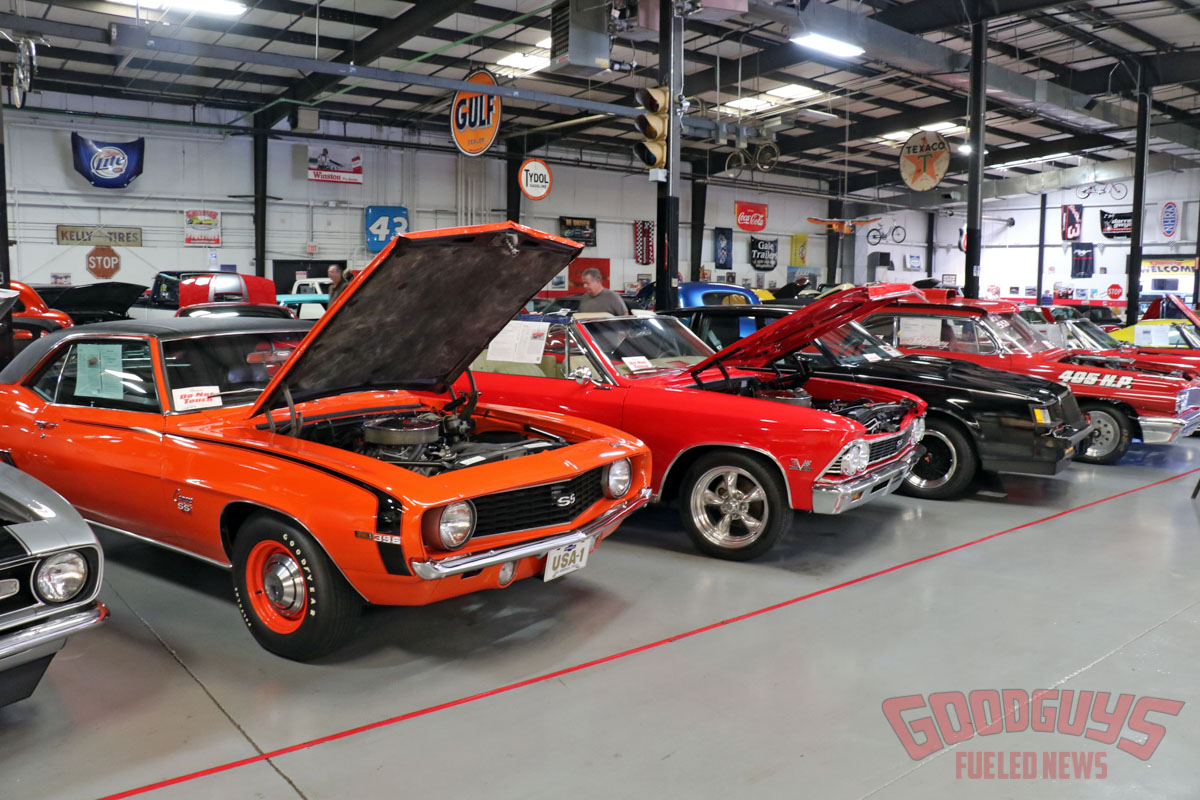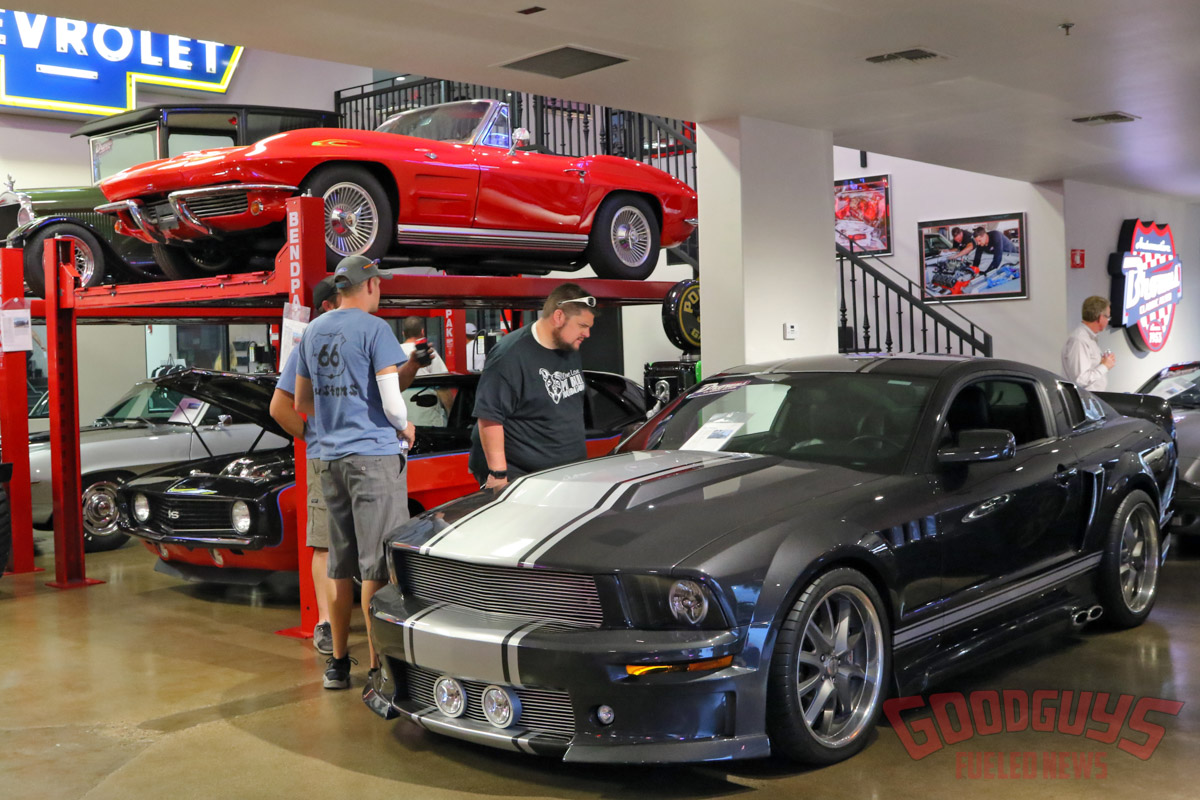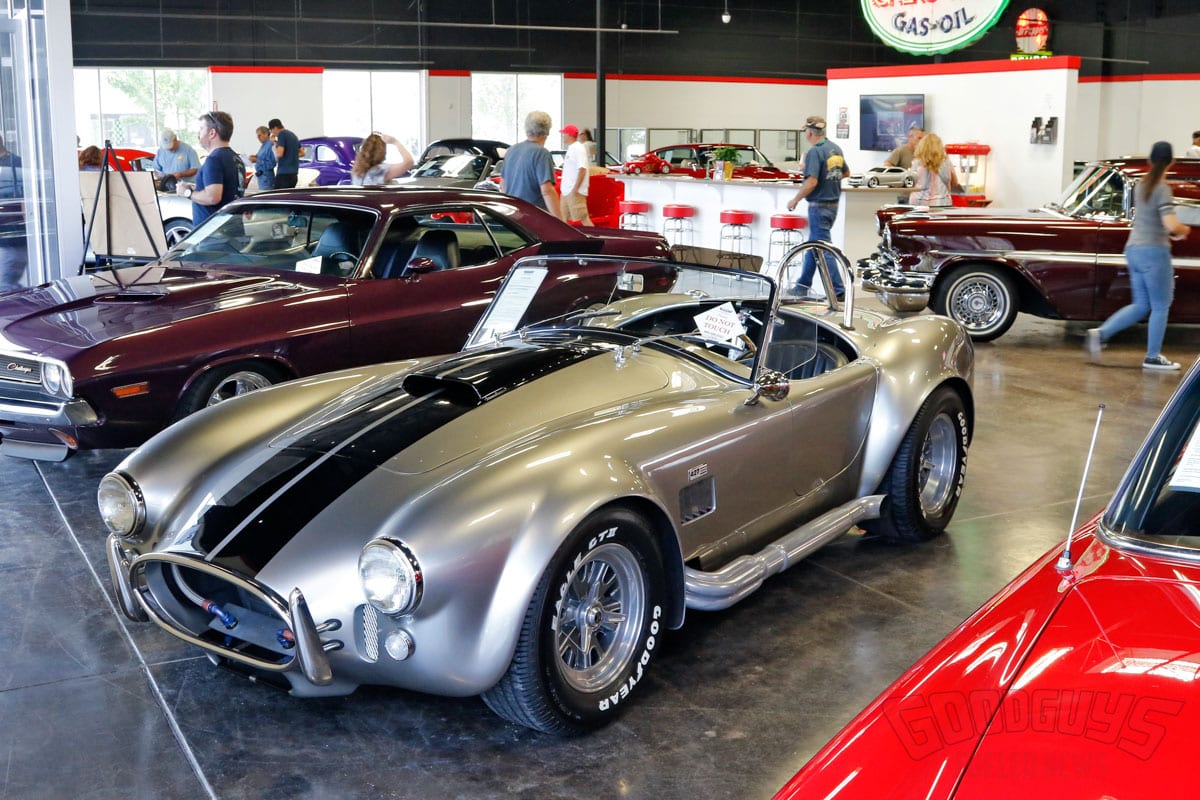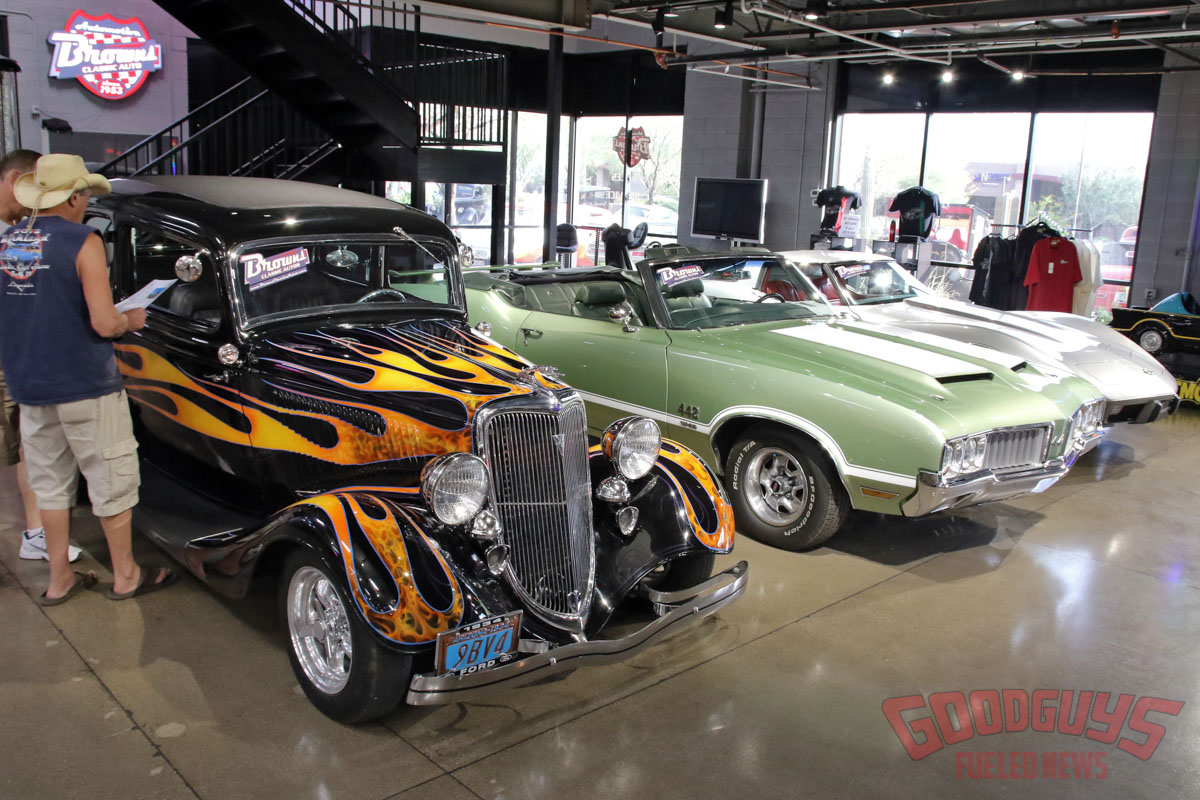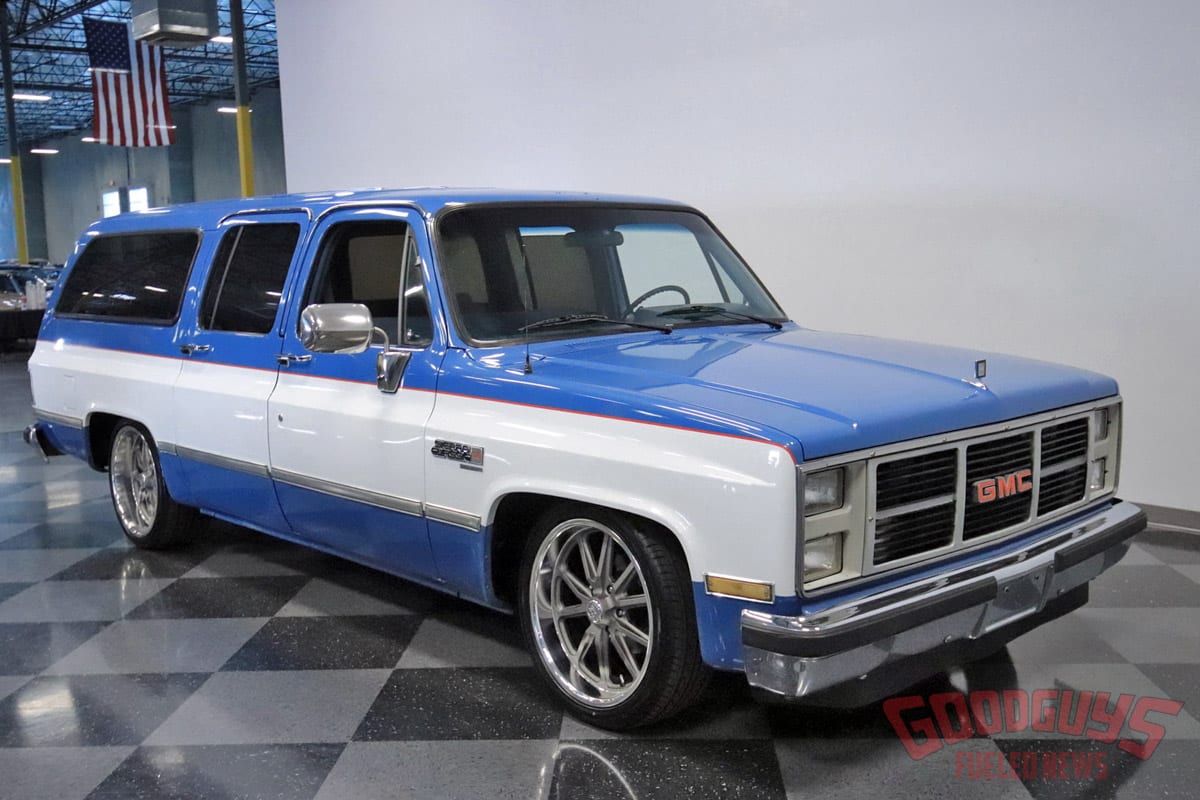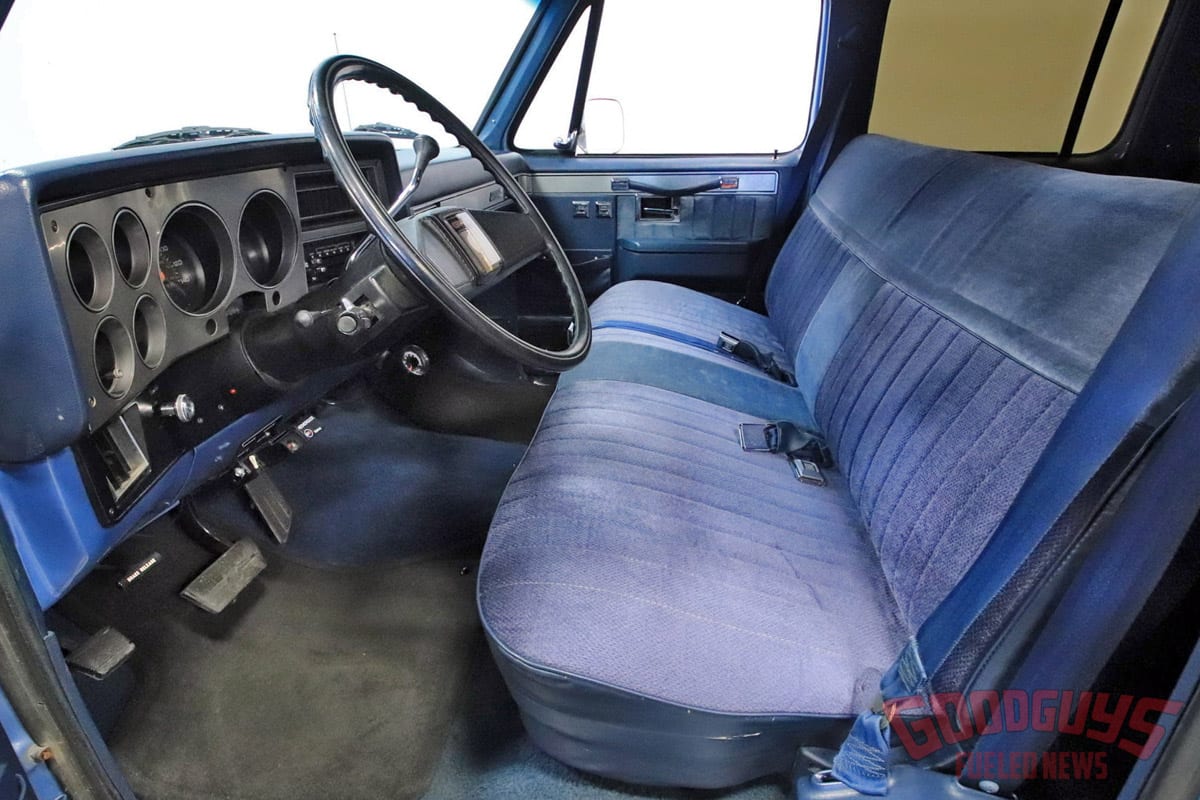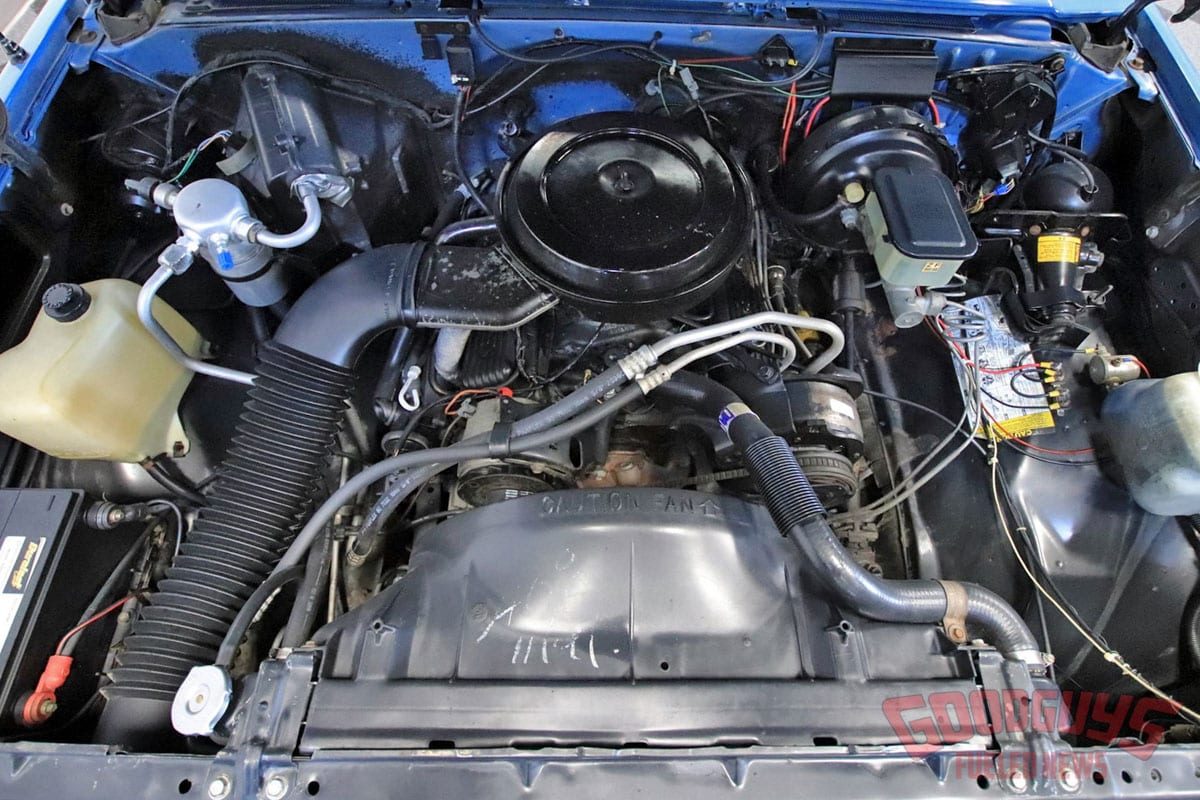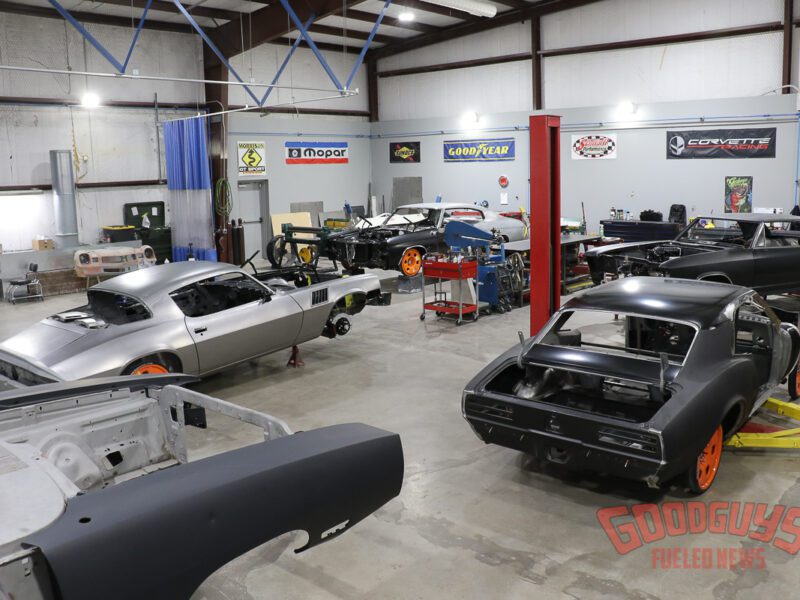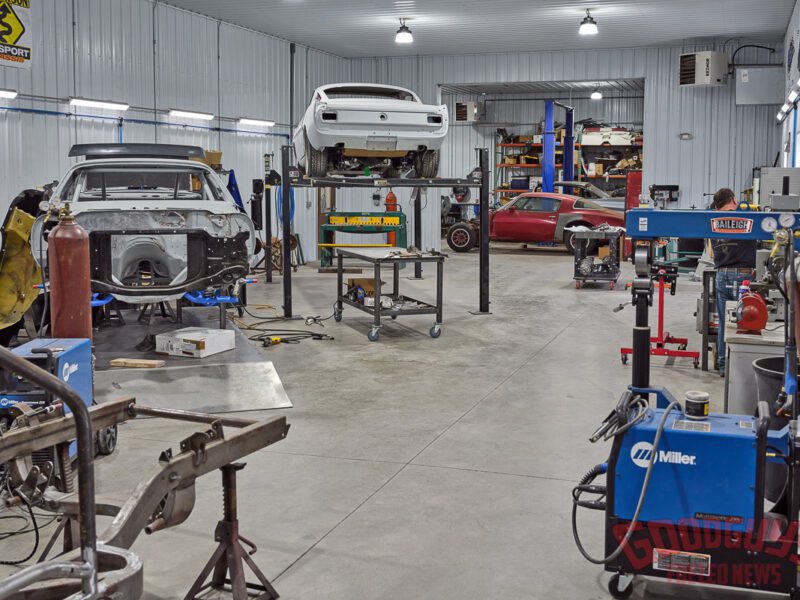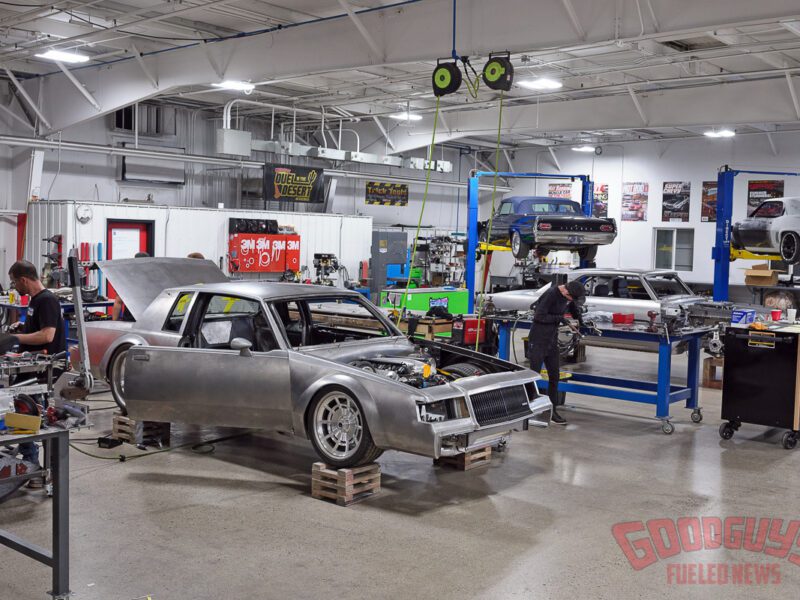Tips on Selling and Buying Through Consignment Shops
If you’ve bought or sold an old car, you know the options: sell to a friend; window signs at shows; Craigslist; a Goodguys Gazette classified; one of the many national car-selling sites. And of course, auctions like Barrett-Jackson and Mecum. For thousands of other buyers and sellers, though, a consignment shop might be preferable, particularly if you don’t like dealing face-to-face with potential buyers. But selling through a consigner requires homework, especially to insure you and your car are protected during the process.
Options run from many single-location operations, around the country, to larger companies like Streetside Classics (six locations) and Gateway Classic Cars (18 locations). Regardless, it’s important to do your research. We did, and based on that research (as well as some experience, we thought we’d offer a few suggestions for selling your ride through a consigner.
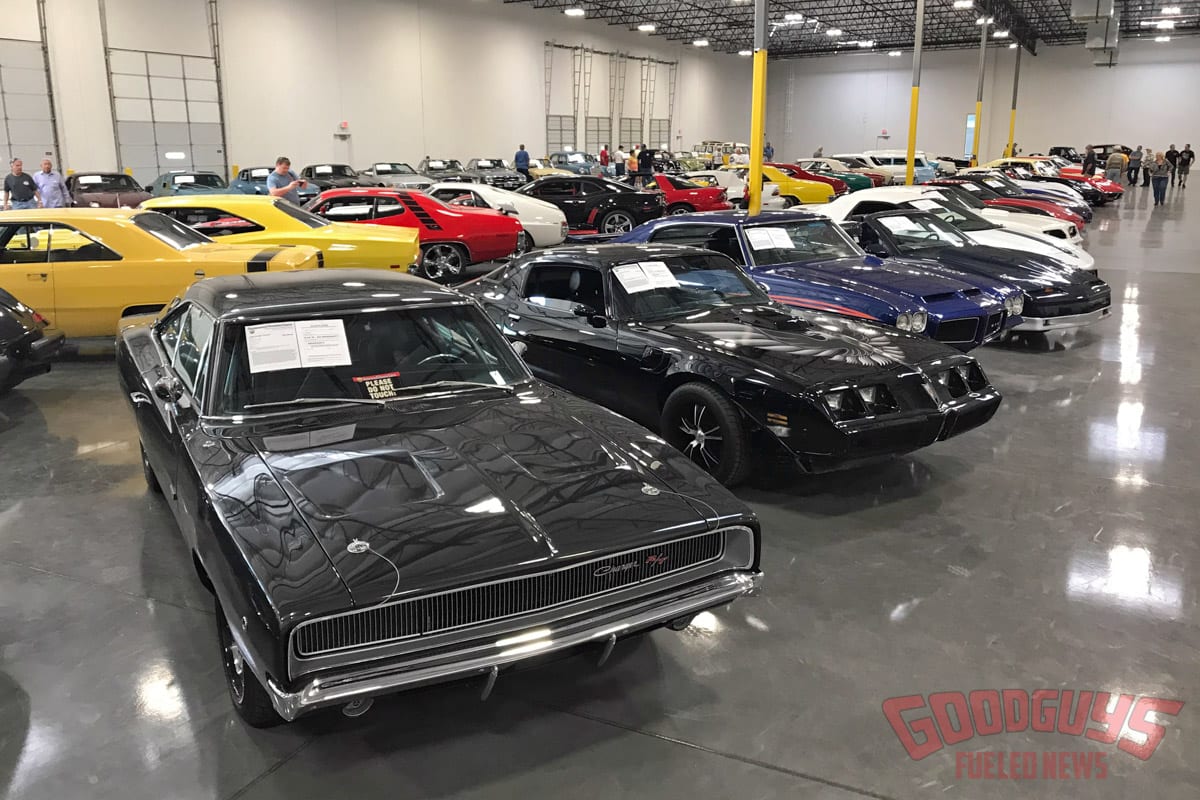
Muscle cars are big with consignment sellers, as evidenced by this selection at Streetside Classics in Arizona in late-2018. With any muscle car purchase, if you’re concerned about authenticity, it’s important to inspect the vehicle thoroughly and, where possible, research the VIN and trim tag to confirm it corresponds with the car’s model and options.
Check the company history.
Is the dealer licensed and bonded? Is the company a Better Business Bureau member? Check online reviews. Ask for references. Online photos can distort the size of a business. Check Google street views, for example, if you aren’t able to physically visit the location.
This is important. What you see is not always what exists. A few years ago in South Florida, a large seemingly well-established consignment shop collapsed, leaving dozens of consigners cheated out of more than a million dollars (Google Blue Marlin Motors). The owner was arrested, tried, convicted and sentenced to more than 30 years. But almost no one recovered their money, or their cars.
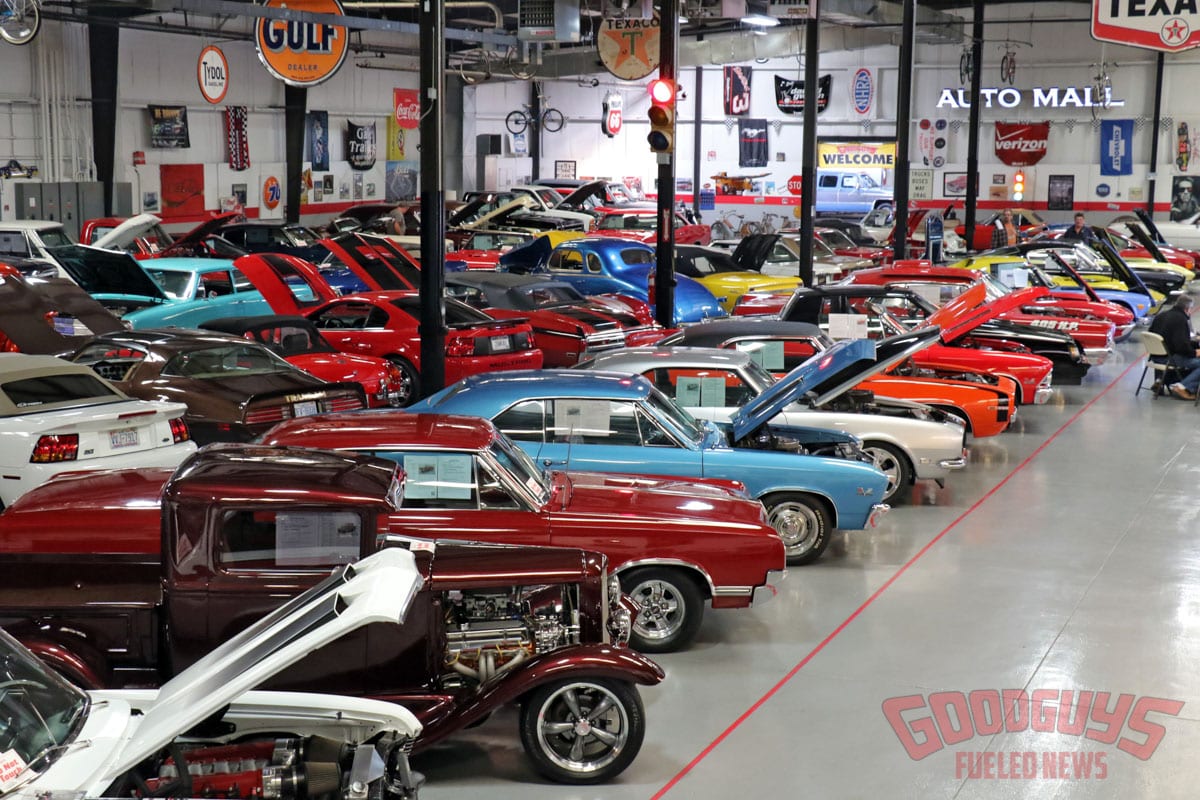
Study the contract carefully.
Make sure it says your vehicle will always be indoors, never left outside. What is the test drive policy? Does it specifically say that a sales rep will always go on a test drive? Does the sales agreement say whether the dealer is insured for damage/theft to your vehicle? For example, if your car is damaged during a test drive, does the dealer pay for repairs?
And make sure the contract details when you will get your money. The best transaction process is that you take the original title to the dealer and only sign it when the dealer hands you a check.
Test drive a potential dealer.
Whether you are selling or buying, Brian George of Roseville, California, has a good idea. He’s bought and sold through dealers and he offers the following advice.
“Act like a customer,” Brian says. “That’s how I started. I started talking cars with the sales guy and he was asking all the right questions. He was making notes so he could follow up with me if he found a car that I might like.”
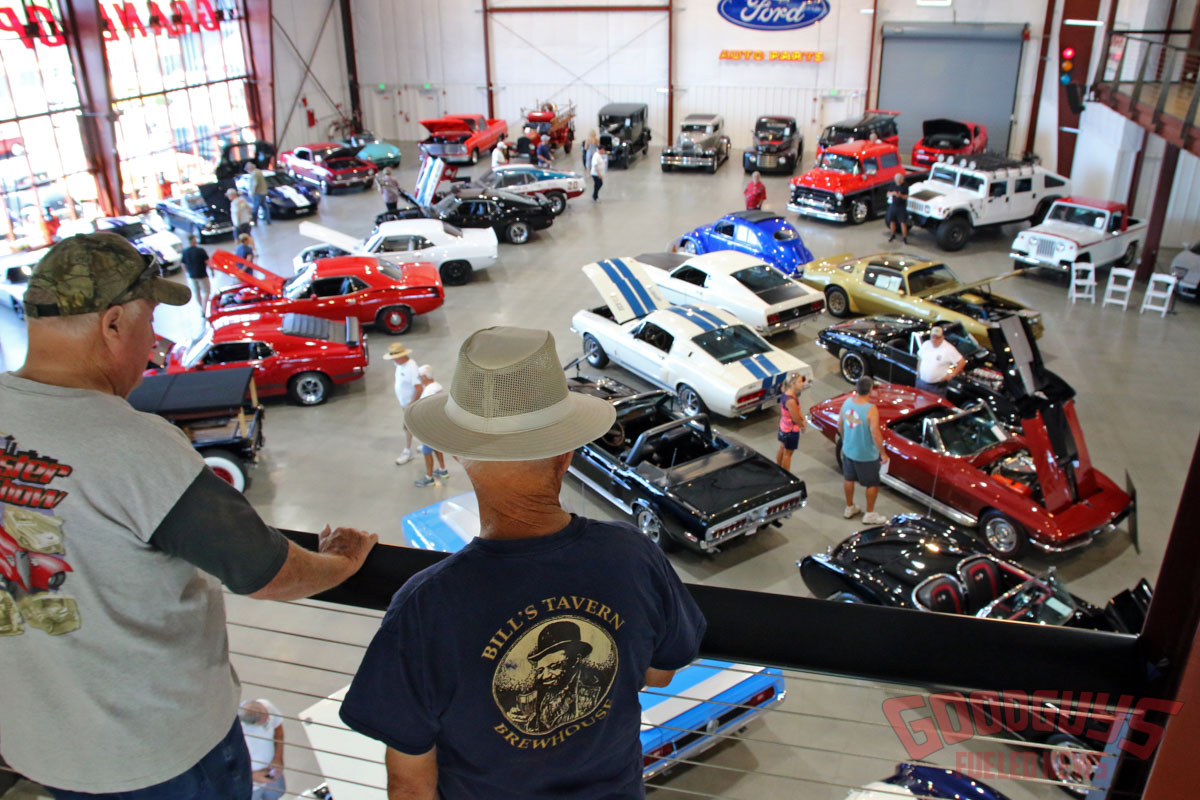
Check your insurance.
While collector car insurers like Grundy and Hagerty often cover your car when it’s at a consignment dealer, verify that policy. If your collector car is insured with a traditional company like State Farm, Progressive, etc., contact your agent to make sure your vehicle is covered when it’s out of your possession.
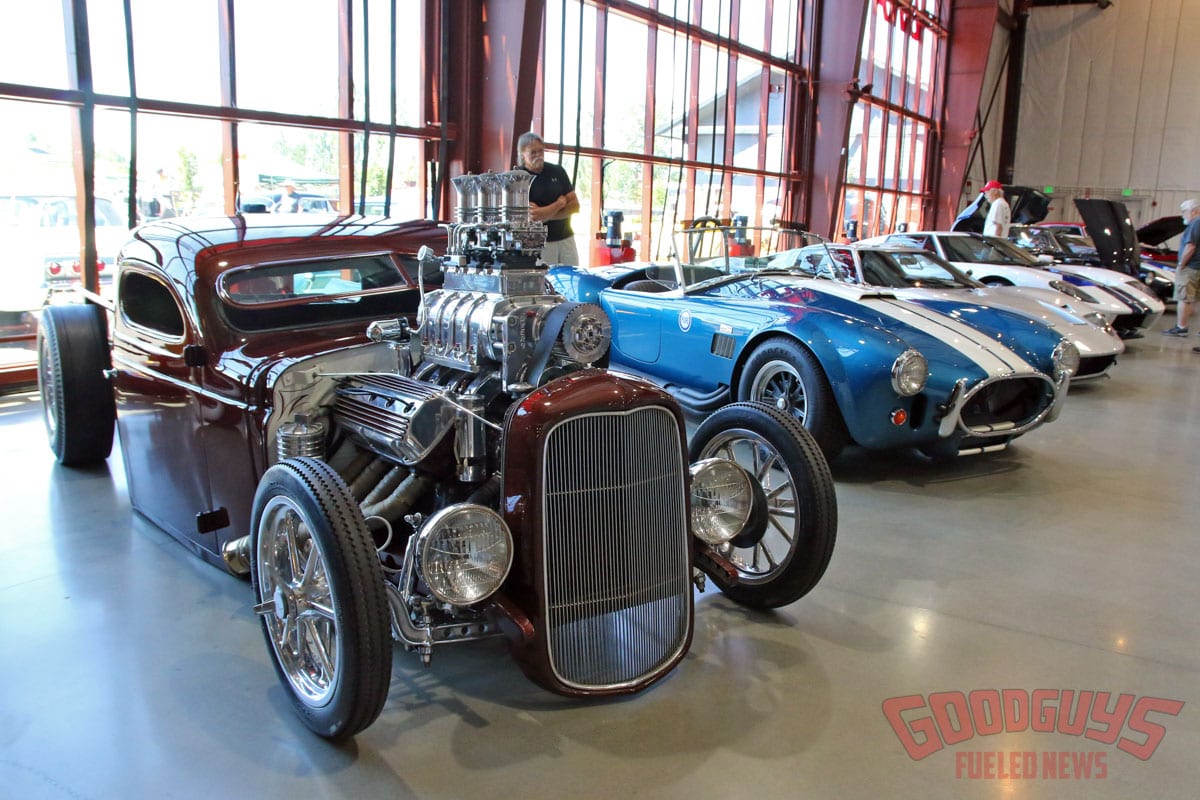
With replicas and home-crafted hot rods, it’s always a good idea to see how the vehicle is titled and confirm that you’ll be able to properly license and register it in your state.
How secure is the dealer?
What type of security system does the dealership have? For example, West Coast Classics in Torrance, California, has 24/365 security monitoring and recorded security cameras.
Don’t surrender your title.
Give the dealer a clearly marked copy when you deliver the vehicle, if it’s requested. “If they are asking you to surrender both your car and the title to them, that’s a big red flag,” says Bob Mueller, vice president of sales and marketing for Streetside Classics.
Get the best price for your car.
While many dealers will detail your car for an additional fee, you can save money and get more for your ride by detailing it yourself before it’s delivered to the dealer. And make sure everything works.
“Buyers don’t want to pay top dollar for vehicles with non-working radios, dash gauges, wipers, lights or other accessories,” Mueller says.
Also, look at the price range of the dealer’s inventory. If most of the cars are under $100,000 but you’re selling a $200,000 vehicle, you might want to select a dealer who is used to selling high-priced rides. “You have to have a guy who knows how to cater to a high-end clientele,” George says, emphasizing that selling $50,000 cars requires a different skill set than selling $100,000-plus vehicles.
What you will pay.
Some dealers charge an up-front fee to put your vehicle into their system. Others do not. The dealer makes its money in a couple of ways. The two most common methods are a commission (a percentage of the price you ultimately get for the car) or a reserve price. That usually means you want a certain amount (say $40,000) and the dealer keeps whatever it gets over that price.
One possible drawback to the reserve method is if the dealer sets the sale price too high. For example, if $40,000 is a fair price for your car, but the dealer is advertising it at $50,000 or more, smart buyers will balk. Regardless of how the dealer makes its money, make sure you and the dealer agree that the money you want for your car (plus the dealer’s profit) represents a fair market price.
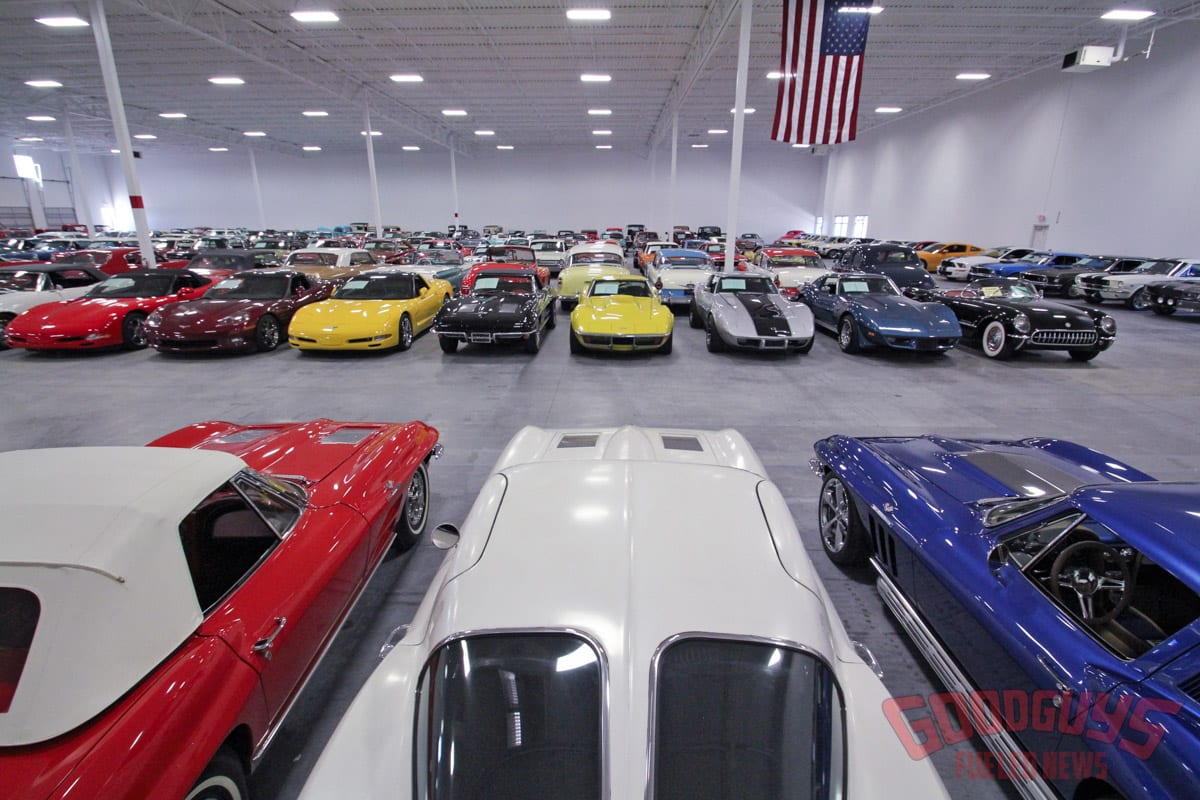
Dealers handle the transactions.
When you sell a vehicle yourself, you’re negotiating with an unknown buyer; you’re completing the bill-of-sale documents, title transfers, etc. Unless it’s a cash sale, you’re also responsible for verifying a check or wire transfer.
A consignment dealer does all this work for you. They sell the car. You bring the title and swap it for a check from the dealer (not the buyer).
Buying from a consignment dealer
Buying from a reputable consignment dealer has its advantages, especially if you don’t want to visit strangers’ houses. Most dealers post dozens of photos and often detailed videos of the vehicles.
You’re examining a car in a safe, professional environment and not visiting a sketchy neighborhood to talk with a stranger. We’ve all seen a car on the web that looks decent, but when you actually see the car it’s not at all what you thought. Or the car doesn’t start, and the owner can’t explain the vehicle history.
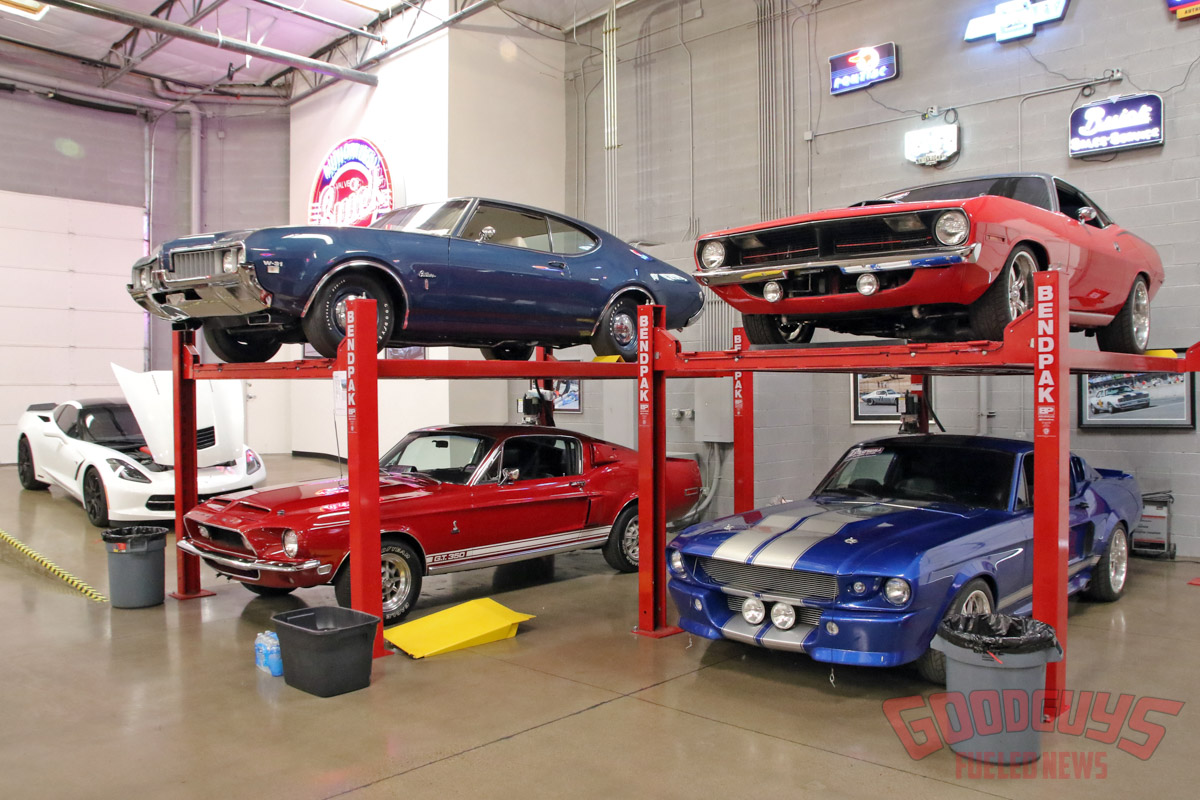
You can search for your dream car on the internet easily, especially since most consignment dealers show their full inventories online. One potential problem is that if you live in Ohio and the car you’re interested in sits in California, checking it out in person can be difficult. If that’s the case, though, and you don’t have a car-guy friend in that part of the world, you can find a professional classic car appraiser to check out the car for you.
Selling a car yourself or through a dealer. Buying a car through a private seller or a dealer. There is no perfect method. But whatever your choice, the more you know the happier you’ll be when you hold a check or the keys to your new ride.
A Buyer’s Story
As a buyer, my experience with a third-party consignment shop was enjoyable. How often can you say that when purchasing a car?
I was in Scottsdale, Arizona, working the Goodguys 2018 Southwest Nationals and enjoying the Thursday Hot Rod Cruise when we went to Streetside Classics for one of the scheduled stops. I had zero intention of purchasing a vehicle and wasn’t in the market for a classic truck (aside from the usual Craigslist daydreams). I already had a ’62 Nova project languishing in the garage; I didn’t need another distraction.
The idea of purchasing from a consignment shop had become a viable option for me, but I figured that might come when the time was right. The thought that I could buy a running, driving car and make small upgrades as I liked sounded like a good plan. I was browsing the inventory at Streetside and stumbled across this ’87 GMC Suburban. Memories of growing up riding in squarebody trucks flashed in my mind and the price was right, if not better than what I had come across on Craigslist and other online sites. Plus, it was an easy way to attend my local shows and events in a vintage vehicle until the long-term Nova project gets finished.
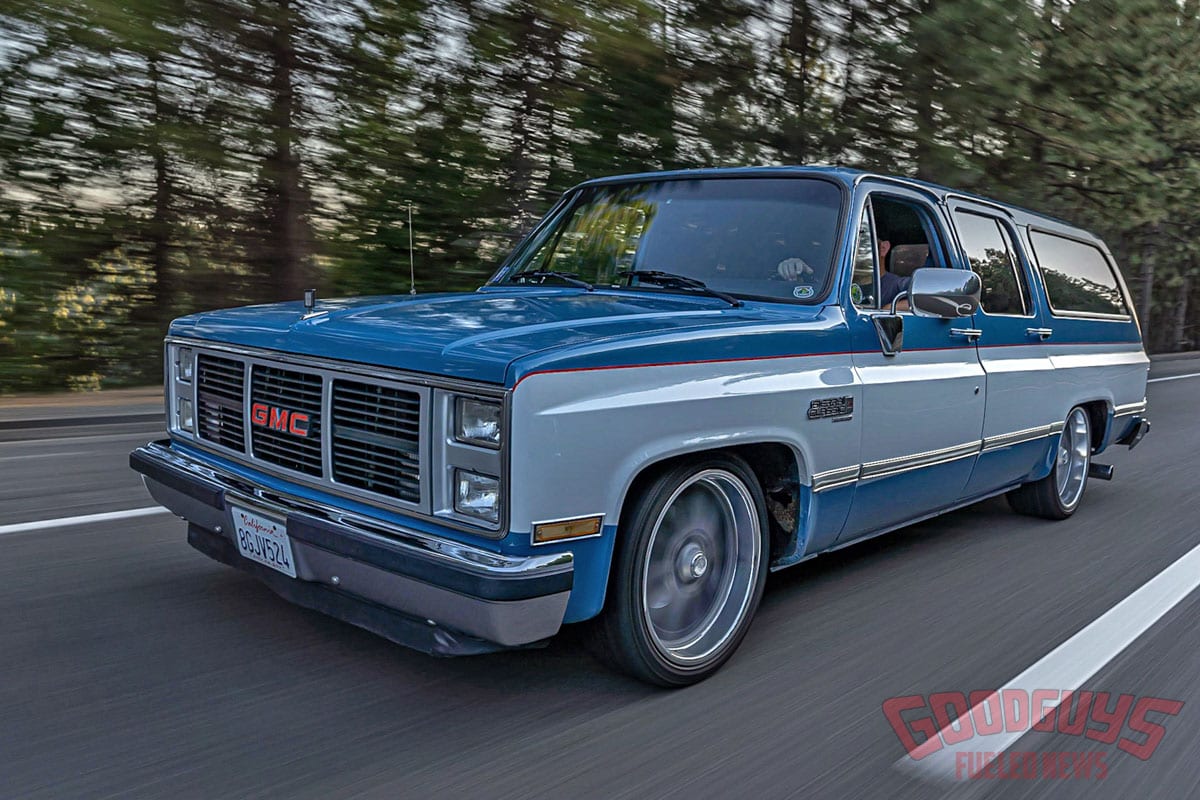
After weighing my options for a day, we started the paperwork on Friday. By Saturday evening the deal was done. Since I was working the Southwest Nationals during the day, all communication with Streetside Classics was done via phone or email until the final signature needed to be signed. The process was effortless, the price was more than reasonable, and my experience as a buyer was positive. Will I search consignment shop inventories when looking for my next project? I already am! -Steven Bunker

